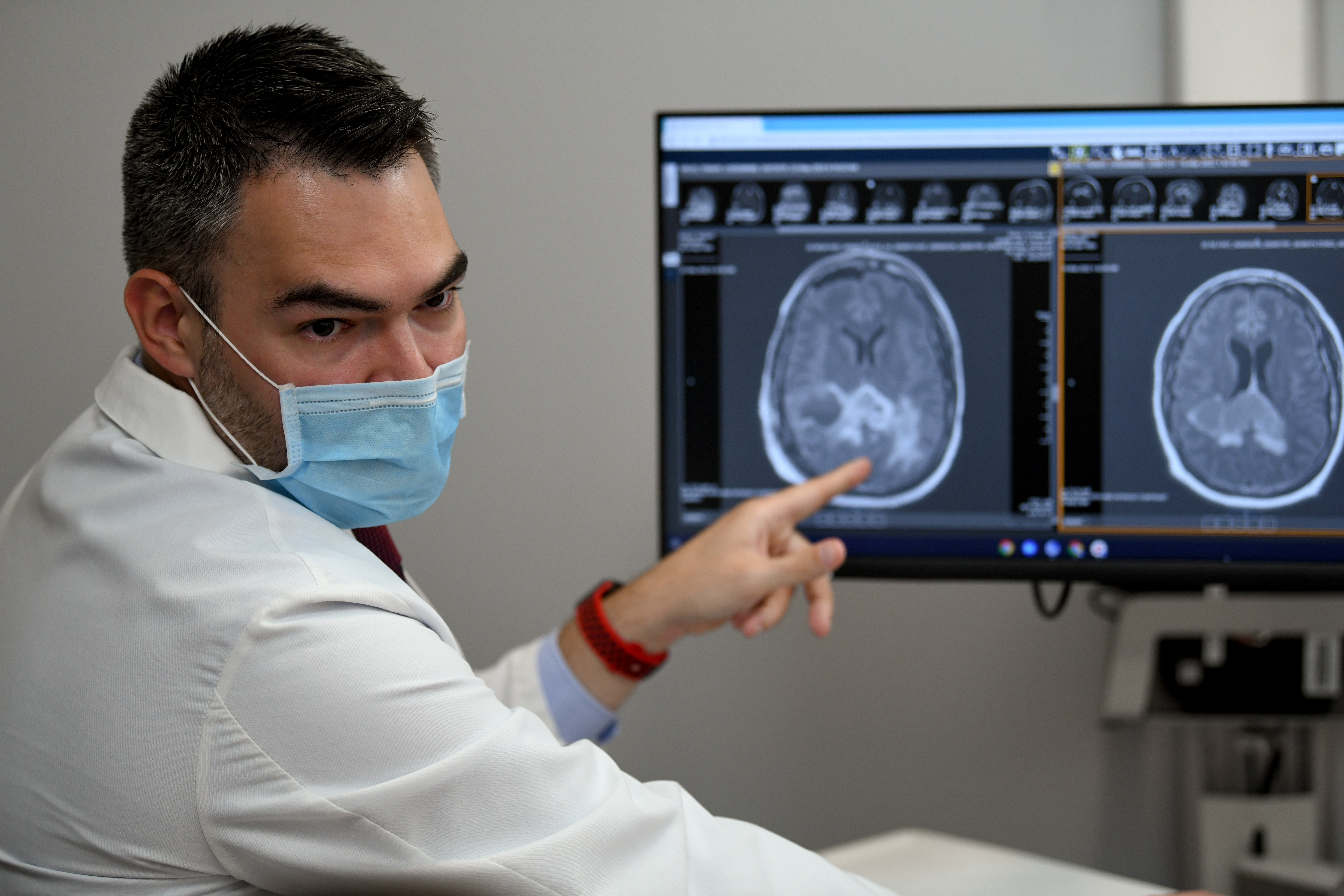Headache and Migraine Treatment in New Jersey
Headaches are a common complaint in our daily lives. Yet, “common” does not necessarily make them “simple.” While a headache can be a result of a non-emergency condition like allergies and sinusitis, the truth is that headaches can be a significant health concern. There are more patients with headaches than any other neurological issue – including stroke. Further, many of these headaches can be debilitating.
At Hackensack Meridian Neuroscience Institute, our neurology team offers expert diagnosis and coordinated care for all types of headaches and facial pain. We specialize in treating refractory migraine headaches that do not respond to conventional therapies, offering the latest treatment options to restore optimal daily functioning and quality of life.
Headache and Migraine Care Locations
Hackensack University Medical Center
Jersey Shore University Medical Center
Headache and Migraine-Related Conditions We Treat
- Cervicogenic headaches
- Chronic daily headaches
- Cluster headaches
- Concussion-related headaches
- Migraine headaches
- New daily persistent headaches
- Tension headaches
- Facial pain
- Trigeminal autonomic cephalalgias
- Trigeminal neuralgia
Diagnosing Conditions Causing Chronic Headaches and Migraines
The most effective care starts with an accurate diagnosis. Our program uses several diagnostics, including:Treatment for Headaches and Migraines
We work closely with you to develop a personalized treatment plan that addresses your specific needs and helps you achieve long-term headache control. Our team is committed to providing you with the most advanced and effective treatments available. We offer a comprehensive approach to headache management such as:Headache and Migraine Research
Our neurologists routinely participate in headache and migraine research and provide our patients with access to the latest evidence-based therapies and the most promising clinical trials.Mental Health Support for People with Chronic Headaches
There is a strong connection between chronic headache and mood. Having bad headaches may make you feel sad or worried. And feeling sad or anxious can contribute to a headache. Our counseling psychologists can help you learn how to cope with your headaches and take control of your life. With your psychologist, you can improve the way that you:- Adhere to medications, which is very important in the treatment of headache
- Participate in pleasurable activities, with the goal of preventing headaches from controlling your life
- Strive to improve your sleep patterns, your diet, and other aspects of healthy living
Using an integrative approach, your headache physician and psychologist will work together to treat your headaches both physically and psychologically. Often you can see your headache physician and psychologist on the same day, avoiding multiple appointments in different locations.










